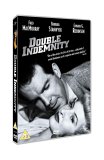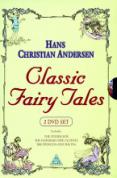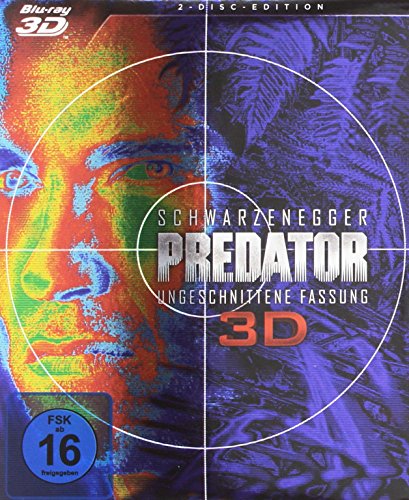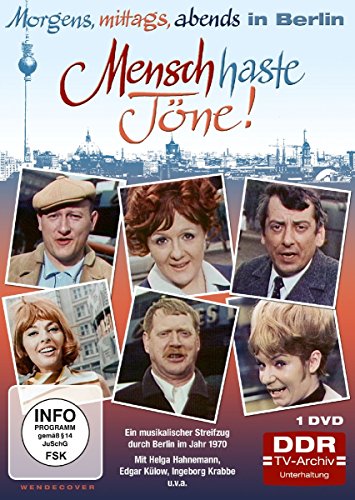 Double Indemnity | DVD | (11/07/2005)
from £10.19
| Saving you £-0.20 (N/A%)
| RRP
Double Indemnity | DVD | (11/07/2005)
from £10.19
| Saving you £-0.20 (N/A%)
| RRP Director Billy Wilder and writer Raymond Chandler adapted James M. Cain's hard-boiled novel into this wildly thrilling story of insurance man Walter Neff (Fred MacMurray), who schemes the perfect murder with the beautiful dame Phyllis Dietrichson (Barbara Stanwyck): kill Dietrichson's husband and make off with the insurance money. But, of course, in these plots things never quite go as planned, and Barton Keyes (Edward G. Robinson) is the wily insurance investigator who must sort things out. From the opening scene you know Neff is doomed, as the story is told in flashback; yet, to the film's credit, this doesn't diminish any of the tension of the movie. This early film noir flick is wonderfully campy by today's standards, and the dialogue is snappy ("I thought you were smarter than the rest, Walter. But I was wrong. You're not smarter, just a little taller"), filled with lots of "dame"s and "baby"s. Stanwyck is the ultimate femme fatale, and MacMurray, despite a career largely defined by roles as a softy, is convincingly cast against type as the hapless, love-struck sap. --Jenny Brown, Amazon.com
![Nosferatu [1922]](/pictures/1012910.jpg) Nosferatu | DVD | (21/01/2002)
from £13.98
| Saving you £6.01 (42.99%)
| RRP
Nosferatu | DVD | (21/01/2002)
from £13.98
| Saving you £6.01 (42.99%)
| RRP Made in 1922, FW Murnau's Expressionist masterpiece Nosferatu--A Symphony of Horrors is an unofficial but reasonably faithful condensation of parts of Bram Stoker's novel Dracula. Alongside Metropolis (1926) it is one of the very few European features from the 1920s that is still regularly shown, and apart from being the first great horror film it laid the foundations of the vampire genre to the present day. Wearing astonishing rodent-like make-up Max Schreck cuts such an iconic figure as the undead Count that the 2001 comedy-horror Shadow of the Vampire suggested he wasn't acting at all! Although Murnau's film was revolutionary and technically adventurous for the time, a modern audience will have to make some allowances for the fact the movie now seems both dated and technically primitive: Murnau's stylised lighting and camera effects have been endlessly imitated and improved upon since, and even its greatest defenders generally admit the film barely raises a shudder, let alone a full-blooded scare. Nevertheless, Nosferatu holds a strange dreamlike grip on the imagination and its incalculable influence on fantasy and horror cinema means this is essential viewing for anyone seriously interested in the development of motion picture art. On the DVD: Presented in Academy at 1.37:1 and with James Bernard's new orchestral score in well-recorded stereo Nosferatu looks and sounds as good as it has in decades. Bernard, composer of Hammer's Dracula (1958) among others, has written a superior score that captures the film's subtitle, "A Symphony of Horrors", and truly brings the images alive in a way previous scores have not. This restored version presents for the first time on video or DVD the blue and brown tints of the original cinema prints and replicates the original hand-designed inter-title cards which with their distinctive designs make the film much more of a compete visual experience. More importantly, this DVD offers approximately another quarter of an hour of material over the usually distributed American version. However, the restoration has not extended to repairing the many lines, scratches, variations in brilliance and other evidence of print damage present throughout. The film is perfectly watchable, being very much what one would expect from the early 1920s. There are text biographies and notes on Murnau and James Bernard, DVD-ROM material on the restoration of the print and a perceptive 23-minute discussion by film expert Christopher Frayling on many aspects of the movie. --Gary S Dalkin
 Hans Christian Andersen - Classic Fairy Tales | DVD | (10/10/2005)
from £N/A
| Saving you £N/A (N/A%)
| RRP
Hans Christian Andersen - Classic Fairy Tales | DVD | (10/10/2005)
from £N/A
| Saving you £N/A (N/A%)
| RRP The fantastic world of Hans Christian AndersenThis 2 DVD set includes 6 of the world famous fairytale-writer's very best fairytales! These unique fairytales have been created in the Danish monastry of Borglum where Hans Christian Andersen himself once lived. The fairytales come alive through magnificent puppet theatre and narration - exactly as they did when the great writer himself was alive.Welcome to the fantastic world of the Fairytale!Disc 1:The Tinder BoxThe Woman With The EggsThe Emperor's New ClothesJack The DullardDisc 2:The Princess And The PeaThe Travelling Companion
![Film Noir, Vol. 1: Stranger/Cause for Alarm! [1946]](/pictures/1013336.jpg) Film Noir, Vol. 1: Stranger/Cause for Alarm! | DVD | (26/10/1999)
from £N/A
| Saving you £N/A (N/A%)
| RRP
Film Noir, Vol. 1: Stranger/Cause for Alarm! | DVD | (26/10/1999)
from £N/A
| Saving you £N/A (N/A%)
| RRP ![12 Angry Men [Blu-ray]](/pictures/1121788.jpg) 12 Angry Men | Blu Ray | (03/06/2013)
from £7.99
| Saving you £N/A (N/A%)
| RRP
12 Angry Men | Blu Ray | (03/06/2013)
from £7.99
| Saving you £N/A (N/A%)
| RRP Henry Fonda Lee J. Cobb Ed Begley and Jack Klugman lead the distinctive cast of jurors whose character portrayals are perfect in every detail (The Hollywood Reporter). With its star-powered cast and three Oscar Nominations including Best Picture 12 Angry Men is a powerful suspenseful and fascinatingly entertaining film (Los Angeles Examiner). Eleven jurors are convinced that the defendant is guilty of murder. The twelfth has no doubt of his innocence. How can this one man steer the others toward the same conclusion? It's a case of seemingly overwhelming evidence against a teenager accused of killing his father in one of the best pictures ever made (The Hollywood Reporter). Special Features: Audio Commentary with Film Historian Drew Casper Beyond Reasonable Doubt: Making 12 Angry Men Inside the Jury Room Original Theatrical Trailer
![Stranger/Orson Welles on Film [1946]](/pictures/1013280.jpg) Stranger/Orson Welles on Film | DVD | (27/06/2000)
from £N/A
| Saving you £N/A (N/A%)
| RRP
Stranger/Orson Welles on Film | DVD | (27/06/2000)
from £N/A
| Saving you £N/A (N/A%)
| RRP The Stranger, according to Orson Welles, "is the worst of my films. There is nothing of me in that picture. I did it to prove that I could put out a movie as well as anyone else." True, set beside Citizen Kane, Touch of Evil, or even The Trial, The Stranger is as close to production-line stuff as the great Orson ever came. But even on autopilot Welles still leaves most filmmakers standing. The shadow of the Second World War hangs heavy over the plot. A war crimes investigator, played by Edward G Robinson, tracks down a senior Nazi, Franz Kindler, to a sleepy New England town where he's living in concealment as a respected college professor. The script, credited to Anthony Veiller but with uncredited input from Welles and John Huston, is riddled with implausibilities: we're asked to believe, for a start, that there'd be no extant photos of a top Nazi leader. The casting's badly skewed, too. Welles wanted Agnes Moorehead as the investigator and Robinson as Kindler, but his producer, Sam Spiegel, wouldn't wear it. So Welles himself plays the supposedly cautious and self-effacing fugitive--and if there was one thing Welles could never play, it was unobtrusive. What's more, Spiegel chopped out most of the two opening reels set in South America, in Welles' view, "the best stuff in the picture". Still, the film's far from a write-off. Welles' eye for stunning visuals rarely deserted him and, aided by Russell Metty's skewed, shadowy photography, The Stranger builds to a doomy grand guignol climax in a clock tower that Hitchcock must surely have recalled when he made Vertigo. And Robinson, dogged in pursuit, is as quietly excellent as ever. On the DVD: not much in the way of extras, except a waffly full-length commentary from Russell Cawthorne that tells us about the history of clock-making and where Edward G was buried, but precious little about the making of the film. Print and sound are acceptable, but though remastering is claimed, there's little evidence of it. --Philip Kemp
![Cezanne Et Moi [DVD]](/pictures/1142421.jpg) Cezanne Et Moi | DVD | (26/06/2017)
from £7.99
| Saving you £N/A (N/A%)
| RRP
Cezanne Et Moi | DVD | (26/06/2017)
from £7.99
| Saving you £N/A (N/A%)
| RRP Guillaume Canet and Guillaume Gallienne star in this French drama written and directed by Danièle Thompson. The story focuses on the friendship between 19th century post-impressionist painter Paul Cezanne (Gallienne) and novelist Ãmile Zola (Canet). Coming from a poor family, Zola soon gains notoriety as a successful writer, while Cezanne, who comes from a wealthy background, struggles to gain acceptance for his work as an artist. Despite their differences, the pair form a strong bond and both move to Paris to continue their careers. However, when a character in Zola's latest book seems to be based on Cezanne's struggles as a painter, the pair clash and their relationship soon becomes strained. The cast also includes Alice Pol, Déborah François and Sabine Azéma.
![Odd Man Out [1946]](/pictures/1041420.jpg) Odd Man Out | DVD | (28/08/2006)
from £13.98
| Saving you £8.00 (66.72%)
| RRP
Odd Man Out | DVD | (28/08/2006)
from £13.98
| Saving you £8.00 (66.72%)
| RRP James Mason stars in this powerful suspense drama as Johnny McQueen the leader of a quasi-IRA group. When he's wounded in a botched robbery he becomes the object of an intense police manhunt and must scramble desperately about Belfast in an attempt to escape. Kathleen (Kathleen Ryan) the woman who loves him also takes off in pursuit of Johnny hoping to reach him before the police do.
![Odd Man Out [1946]](/pictures/1012414.jpg) Odd Man Out | DVD | (07/07/2003)
from £N/A
| Saving you £N/A (N/A%)
| RRP
Odd Man Out | DVD | (07/07/2003)
from £N/A
| Saving you £N/A (N/A%)
| RRP Odd Man Out is a British classic from 1947 that fits the film noir definition in almost every respect. It's one of the milestones of its era, highlighted by what is arguably the best performance in the illustrious career of James Mason, here playing the leader of an underground Irish rebel organisation, who is seriously wounded when a payroll heist goes sour. Left for dead by his accomplices on the streets of Belfast he's forced to hide wherever he can find shelter and as his gunshot wound gradually drains his life away, his lover (Kathleen Ryan) struggles to locate him before it's too late. Although the IRA and Belfast are never mentioned by name, this film was a daring and morally complex examination of Northern Ireland's "troubles" and the compelling tragedy hasn't lost any of its impact. A study of conscience in crisis and the bitter aftermath of terrorism, this was one of the first films to address IRA activities on intimately human terms. Political potency is there for those who seek it, but the film is equally invigorating as a riveting story of a tragic figure on the run from the law, forced to confront the wrath of his own beliefs in the last hours of his life. It was this brilliant, unforgettable film that established the directorial prowess of Carol Reed, whose next two films (The Fallen Idol and The Third Man) were equally extraordinary. --Jeff Shannon
![The Man Who Knew Too Much [1934]](/pictures/1011871.jpg) The Man Who Knew Too Much | DVD | (24/05/2004)
from £8.38
| Saving you £-2.39 (-39.90%)
| RRP
The Man Who Knew Too Much | DVD | (24/05/2004)
from £8.38
| Saving you £-2.39 (-39.90%)
| RRP Alfred Hitchcock himself called this 1934 British edition of his famous kidnapping story "the work of a talented amateur", while his 1956 Hollywood remake was the consummate act of a professional director. Be that as it may, this earlier movie still has its intense admirers who prefer it over the Jimmy Stewart--Doris Day version, and for some sound reasons. Tighter, wittier, more visually outrageous (back-screen projections of Swiss mountains, a whirly-facsimile of a fainting spell), the film even has a female protagonist (Edna Best in the mom part) unafraid to go after the bad guys herself with a gun. (Did Doris Day do that that? Uh-uh.) While the 1956 film has an intriguing undercurrent of unspoken tensions in nuclear family politics, the 1934 original has a crisp air of British optimism glummed up a bit when a married couple (Best and Leslie Banks) witness the murder of a spy and discover their daughter stolen away by the culprits. The chase leads to London and ultimately to the site of one of Hitch's most extraordinary pieces of suspense (though on this count, it must be said, the later version is superior). Take away distracting comparisons to the remake, and this Man Who Knew Too Much is a milestone in Hitchcock's early career. Peter Lorre makes his British debut as a scarred, scary villain. --Tom Keogh
![Apocalypse Now [Blu-ray]](/pictures/1150938.jpg) Apocalypse Now | Blu Ray | (10/08/2015)
from £19.98
| Saving you £N/A (N/A%)
| RRP
Apocalypse Now | Blu Ray | (10/08/2015)
from £19.98
| Saving you £N/A (N/A%)
| RRP Zavvi Exclusive Apocalypse Now Special 3 disc Edition Steelbook 3 disc Edition Includes Apocalypse Now, Apocalypse Now Redux and the award winning documentary, Heart Of Darkness. Artwork authorised by Francis Ford Coppola. Five-time Academy Award winner Francis Ford Coppola (The Godfather Trilogy) brings this epic and horrifying tale set in the midst of the Vietnam War. Captain Willard (Martin Sheen) has been put forward by Colonel Lucas (Harrison Ford) to partake in an extremely dangerous mission to Cambodia where he must assassinate Colonel Walter E. Kurtz (Marlon Brando). Kurtz is a highly skilled and exceptionally dangerous Green Beret who has believed to have gone insane and has set himself up as a godly figure to a tribe of violent followers. Willard soon realises that Kurtz is a highly decorated officer in the US army and must now put his life on the line to put a stop to Kurtz's madness. But does he have what it takes?
![TARANTULA - MOVIE [DVD] [1955]](/pictures/1152512.jpg) TARANTULA - MOVIE | DVD | (13/04/2006)
from £8.87
| Saving you £N/A (N/A%)
| RRP
TARANTULA - MOVIE | DVD | (13/04/2006)
from £8.87
| Saving you £N/A (N/A%)
| RRP ![Napoleon - He Would Stop At Nothing Until Europe Was His - Emmy Award Winning (Starring John Malcovich, Gérard Depardieu & Isabella Rossellini) [DVD] [2021]](/pictures/1157963.jpg) Napoleon - He Would Stop At Nothing Until Europe Was His - Emmy Award Winning (Starring John Malcovich, Gérard Depardieu & Isabella Rossellini) | DVD | (14/03/2022)
from £N/A
| Saving you £N/A (N/A%)
| RRP
Napoleon - He Would Stop At Nothing Until Europe Was His - Emmy Award Winning (Starring John Malcovich, Gérard Depardieu & Isabella Rossellini) | DVD | (14/03/2022)
from £N/A
| Saving you £N/A (N/A%)
| RRP ![Shattered (1991) [Blu-ray]](/pictures/1158883.jpg) Shattered (1991) | Blu Ray | (13/10/2015)
from £N/A
| Saving you £N/A (N/A%)
| RRP
Shattered (1991) | Blu Ray | (13/10/2015)
from £N/A
| Saving you £N/A (N/A%)
| RRP ![Les Bronzés font du ski [DVD]](/pictures/1159151.jpg) Les Bronzés font du ski | DVD | (06/08/2007)
from £N/A
| Saving you £N/A (N/A%)
| RRP
Les Bronzés font du ski | DVD | (06/08/2007)
from £N/A
| Saving you £N/A (N/A%)
| RRP ![Fandango [Blu-ray]](/pictures/1160259.jpg) Fandango | Blu Ray | (12/04/2022)
from £N/A
| Saving you £N/A (N/A%)
| RRP
Fandango | Blu Ray | (12/04/2022)
from £N/A
| Saving you £N/A (N/A%)
| RRP  Predator (3D Vers.)(Blu-ray) (FSK 18) | Blu Ray | (12/12/2013)
from £N/A
| Saving you £N/A (N/A%)
| RRP
Predator (3D Vers.)(Blu-ray) (FSK 18) | Blu Ray | (12/12/2013)
from £N/A
| Saving you £N/A (N/A%)
| RRP ![Die Buechse der Pandora-limitiertes Mediabook (D [Blu-ray]](/pictures/1162504.jpg) Die Buechse der Pandora-limitiertes Mediabook (D | Blu Ray | (15/11/2019)
from £45.31
| Saving you £N/A (N/A%)
| RRP
Die Buechse der Pandora-limitiertes Mediabook (D | Blu Ray | (15/11/2019)
from £45.31
| Saving you £N/A (N/A%)
| RRP ![Soylent Green [Blu-ray] [2022] [Region Free]](/pictures/1163625.jpg) Soylent Green | Blu Ray | (26/09/2022)
from £24.17
| Saving you £N/A (N/A%)
| RRP
Soylent Green | Blu Ray | (26/09/2022)
from £24.17
| Saving you £N/A (N/A%)
| RRP Soylent Green is landmark science fiction film, a cautionary tale that holds a mirror to a tomorrow rife with ecological disaster. Working well again in the futuristic genre following Planet of the Apes and The Omega Man, action titan Charlton Heston portrays Thom, a detective prowling the dank streets of a polluted, overpopulated Big Apple gone rotten in 2022.He's trailing a murderer and the trail leads to a stunning discovery. Vividly realised, Soylent Green's world gains its power not just from its special effects but from its heart a human dimension magnified by the performance of legendary Edward G.Robinson in his moving screen farewell.Product FeaturesCommentary by Richard Fleischer and Leigh Taylor-YoungA Look at The World of Soylent GreenMGM's Tribute to Edward G.Robinson's 101st FilmDebossed finish on the title treatment of the Steelbook
 Mensch haste Töne! | DVD | (26/05/2017)
from £5.55
| Saving you £N/A (N/A%)
| RRP
Mensch haste Töne! | DVD | (26/05/2017)
from £5.55
| Saving you £N/A (N/A%)
| RRP 
Please wait. Loading...
This site uses cookies.
More details in our privacy policy